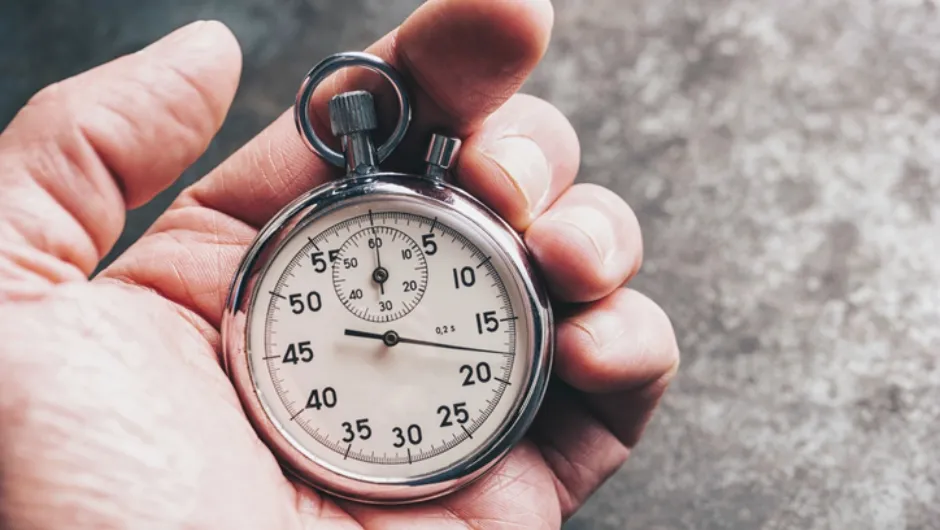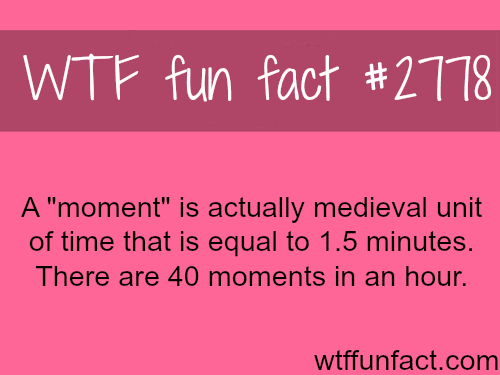A moment is traditionally defined as 90 seconds. This measurement dates back to medieval times.
People often use the term “moment” to describe a brief period. The historical definition provides a more precise understanding. In medieval times, scholars divided an hour into 40 moments, making each moment 90 seconds. While modern usage is less specific, knowing the exact length can be intriguing.
It adds depth to our understanding of time. The concept helps in various fields, from history to science. Recognizing its exact measurement enriches our daily conversations. It offers clarity when discussing short durations. People often overlook the historical roots of common terms. Understanding “moment” as 90 seconds brings a fascinating historical perspective.
Concept Of A Moment
The concept of a moment is intriguing and complex. It’s a brief span of time, yet it holds significant meaning. Different cultures and eras have their own interpretations. Let’s explore this fascinating idea.
Historical Perspectives
Historically, a moment was a measurable unit of time. In medieval Europe, it was defined as 1/40th of an hour. This equals 1.5 minutes. Ancient civilizations had their own measures too. The Egyptians and Greeks used their own methods to track time. These methods varied, but they all aimed to capture the fleeting nature of a moment.
Modern Interpretations
Today, a moment is more subjective. It’s often seen as an instant or a very brief period. Technology has influenced our perception. Digital clocks and timers can measure milliseconds. This has changed how we view moments. Social media also plays a role. A viral post or trending topic can become a moment in our lives.
| Aspect | Historical Perspective | Modern Interpretation |
|---|---|---|
| Time Measurement | 1/40th of an hour | Milliseconds |
| Subjectivity | Fixed unit | Varies greatly |
Understanding the concept of a moment helps us appreciate time. Whether historical or modern, each moment carries its own significance.
Scientific Measurement
Understanding the length of a moment can be tricky. Scientists use different ways to measure time. In this section, we will explore these methods.
Physics Of Time
Physics helps us understand how time works. It studies the smallest parts of time. These parts are called Planck time. Planck time is very short, about 5.39 x 10^-44 seconds.
Scientists also use seconds, minutes, and hours to measure time. These units are based on the Earth’s movement. A second is defined by the vibration of cesium atoms. One second equals 9,192,631,770 vibrations of a cesium atom.
In physics, time is often measured with atomic clocks. These clocks are very precise. They use the vibration of atoms to keep time.
Biological Clocks
Biological clocks help living things keep track of time. These clocks are inside our bodies. They control our sleep, hunger, and other daily rhythms.
Biological clocks are based on circadian rhythms. These rhythms follow a 24-hour cycle. They are influenced by light and darkness.
Our brains have a special part called the suprachiasmatic nucleus (SCN). The SCN acts as the main biological clock. It helps control other clocks in our body.
Animals and plants also have biological clocks. These clocks help them survive and thrive. For example, birds know when to migrate. Plants know when to open and close their leaves.
Psychological Perception
Have you ever wondered how long a moment feels? Our perception of time is unique. It depends on various factors like emotions and experiences. Let’s explore the fascinating world of psychological perception.
Subjective Experience
Subjective experience plays a crucial role in how we perceive time. Each person experiences time differently. For instance, a minute feels long when waiting for a bus. But it feels short during a fun activity. Our brain processes these experiences in unique ways.
| Situation | Perceived Time |
|---|---|
| Waiting for a bus | Feels long |
| Enjoying a game | Feels short |
Impact Of Emotions
Emotions have a strong impact on time perception. Positive emotions can make time fly. Negative emotions can slow it down. For example, feeling anxious makes time drag. Feeling happy makes it speed up. This phenomenon affects everyone differently.
- Happiness makes moments feel shorter.
- Anxiety makes moments feel longer.
- Excitement quickens time perception.
- Smile more to enjoy your moments.
- Practice relaxation to shorten anxious times.
Understanding these factors helps us manage our time better. It also brings awareness to how emotions shape our world.

Credit: www.sciencefocus.com
Cultural Variations
Time is a universal concept. Yet, its perception varies across cultures. Different societies have unique ways to measure and understand a ‘moment’. This section explores how different cultures interpret this elusive unit of time.
Western Views
In Western cultures, a moment is often seen as a short, indefinite period. Historically, a moment was a medieval unit of time, lasting about 90 seconds. Today, it has a more flexible meaning. People might say, “I’ll be there in a moment,” implying a brief wait.
Western views often focus on precision and quantification. For example, in the business world, every second counts. This precision impacts how Westerners view time. They often use watches and clocks to measure moments precisely.
Here’s a quick look at different Western interpretations of a moment:
| Context | Duration |
|---|---|
| Everyday Speech | 1-2 minutes |
| Historical (Medieval) | 90 seconds |
| Business Meetings | Seconds to Minutes |
Eastern Philosophies
Eastern philosophies offer a different approach. In many Eastern cultures, a moment is more about the present experience. It’s not just a measure of time but a state of being.
For example, in Buddhism, a moment is an instant of consciousness. It’s a fleeting, ever-changing experience. This philosophy teaches mindfulness, focusing on the present moment. In Taoism, time is seen as a flowing river. Moments are fluid and continuous, not fixed or measured.
Here are some ways Eastern cultures interpret a moment:
| Philosophy | Interpretation |
|---|---|
| Buddhism | An instant of consciousness |
| Taoism | A flowing, continuous experience |
| Hinduism | A part of the cosmic cycle |
Time In Technology
Technology has changed how we understand and measure time. From ancient sundials to digital clocks, timekeeping has evolved. Each step shows how our grasp of time has become more precise and integrated into our daily lives.
Digital Clocks
Digital clocks are everywhere: on our phones, computers, and appliances. They display time using numbers, making it easy to read. Unlike analog clocks, digital clocks update every second. This precise measurement helps in many fields.
These clocks often sync with atomic time servers. This ensures they are accurate to the second.
Timekeeping Innovations
New technologies keep pushing the boundaries of timekeeping. Innovations have led to more accurate and reliable methods.
Some key innovations include:
- Atomic Clocks: These clocks are extremely precise. They measure time using the vibrations of atoms.
- GPS: The Global Positioning System relies on precise time measurements. It uses multiple satellites to provide accurate location data.
- Internet Time: Devices now sync with online servers. This keeps clocks accurate across the globe.
These innovations are crucial for:
- Navigation
- Communication
- Scientific research
Time is now measured more precisely than ever before. This precision impacts many aspects of our lives.

Credit: wtffunfact.com

Credit: www.youtube.com
Frequently Asked Questions
What Is A Moment In Time?
A moment is a very brief period. Historically, it was defined as 90 seconds. Today, it’s more abstract.
How Many Seconds Are In A Moment?
Traditionally, a moment was 90 seconds. However, in modern usage, it varies depending on context.
How Long Is A Moment In History?
In historical terms, a moment was precisely 90 seconds. This unit was used in medieval times.
Why Is A Moment Considered Brief?
A moment is considered brief because it represents a fleeting, short period. It’s often used to indicate urgency.
Conclusion
Understanding the length of a moment can enrich our perception of time. Moments are subjective and vary greatly. This concept invites us to appreciate each fleeting second. By valuing moments, we enhance our daily lives. Embrace these brief instances and make the most of every moment.
